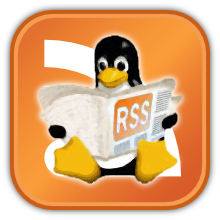FreeNAS is an Open Source Storage Platform based on FreeBSD and supports sharing across Windows, Apple, and UNIX-like systems.
FreeNAS8 includes ZFS, which supports high storage capacities and integrates file systems and volume management into a single piece of software.
FreeNAS is a free network-attached storage server, supporting: CIFS (Samba), FTP, NFS, rsync, AFP protocols, iSCSI, S.M.A.R.T., local user authentication, and software RAID (0,1,5), with a web-based configuration interface.
FreeNAS takes less than 64 MB once installed on CompactFlash, hard drive or USB flash drive. FreeNAS is currently distributed as an ISO image and in source form. Through version 7.x, it was possible to run FreeNAS from a Live CD, with the configuration files stored on an MS-DOS-formatted floppy disk or USB thumb drive. There is also a VMware disk image available. With the release of 8.x, Live CD isn't currently supported. FreeNas 8.x needs to be installed on a Compact Flash, USB, or dedicated hard drive. Using the dedicated hard drive will use that drive just for the operating system, and files cannot be stored on it.
The minimal FreeBSD 7.2 distribution, web interface, PHP scripts, and documentation are based on m0n0wall. FreeNAS is released under the BSD license. It was reported December 2009 that FreeBSD based development would be halted and put into 'maintenance-only mode' with Debian Linux as the new development target OS. This decision was reverted shortly afterwards, when iXsystems offered to sponsor the further development of FreeNAS.
FreeNAS is a free network-attached storage server, supporting: CIFS (Samba), FTP, NFS, rsync, AFP protocols, iSCSI, S.M.A.R.T., local user authentication, and software RAID (0,1,5), with a web-based configuration interface.
FreeNAS takes less than 64 MB once installed on CompactFlash, hard drive or USB flash drive. FreeNAS is currently distributed as an ISO image and in source form. Through version 7.x, it was possible to run FreeNAS from a Live CD, with the configuration files stored on an MS-DOS-formatted floppy disk or USB thumb drive. There is also a VMware disk image available. With the release of 8.x, Live CD isn't currently supported. FreeNas 8.x needs to be installed on a Compact Flash, USB, or dedicated hard drive. Using the dedicated hard drive will use that drive just for the operating system, and files cannot be stored on it.
The minimal FreeBSD 7.2 distribution, web interface, PHP scripts, and documentation are based on m0n0wall. FreeNAS is released under the BSD license. It was reported December 2009 that FreeBSD based development would be halted and put into 'maintenance-only mode' with Debian Linux as the new development target OS. This decision was reverted shortly afterwards, when iXsystems offered to sponsor the further development of FreeNAS.
Updates (via Distrowatch):
Josh Paetzel has announced the availability of the second beta release of FreeNAS 8.0.1: "Hot on the tail of the first BETA I am proud to announce 8.0.1-BETA2. This is the second of three planned betas in the 8.0.1 release cycle. Most of the changes from BETA1 are bug fixes. In particular several bugs have been fixed in the migrations from 8.0-RELEASE. The system was not relabeling ZFS volumes to use the new devicename-independent naming scheme correctly in BETA1. Also the database migration scripts in BETA1 do not migrate NFS shares properly. The upgrade/migration scripts have been improved. In previous versions failure of the database upgrade was easy to miss, and it could leave the system booting to single-user mode with error messages that had nothing to do with the root issue. This has been rectified. If a database migration does fail, the error message will be clear as to what happened."
Here is the complete release announcement.
Download (SHA256): FreeNAS-8.0.1-BETA2-i386.isoFreeNAS-8.0.1-BETA2-amd64.iso (108MB). (102MB),
Recent releases:
• 2011-06-08: Development Release: FreeNAS 8.0.1 Beta 2
• 2011-06-03: Development Release: FreeNAS 8.0.1 Beta 1
• 2011-05-02: BSD Release: FreeNAS 8.0
• 2011-04-12: Development Release: FreeNAS 8.0 RC5
• 2011-04-01: Development Release: FreeNAS 8.0 RC4
• 2011-03-15: Development Release: FreeNAS 8.0 RC3
• 2011-06-03: Development Release: FreeNAS 8.0.1 Beta 1
• 2011-05-02: BSD Release: FreeNAS 8.0
• 2011-04-12: Development Release: FreeNAS 8.0 RC5
• 2011-04-01: Development Release: FreeNAS 8.0 RC4
• 2011-03-15: Development Release: FreeNAS 8.0 RC3
Features.
* Protocols: CIFS (via Samba), TFTP, FTP, NFS, SSH, rsync, AFP, UPnP, BitTorrent (protocol) and iTunes.
* Extensions (plug-ins) for: SlimServer, Xbox Media Stream Protocol.
* rsync server, client and local sync.
* Unison support.
* iSCSI targets feature to create virtual disks.
* iSCSI initiator.
* Dynamic DNS client for: DynDNS, ZoneEdit, No-Ip, and freedns.afraid.org.
* File systems: ZFS, UFS and ext2/ext3 are fully supported, NTFS read/write and FAT32 read/write supported.
* Hard drive: P-ATA/S-ATA, SCSI, iSCSI, USB and FireWire.
* GPT/EFI partitioning for hard drives larger than 2 Terabytes.
* Network cards: All wired and wireless cards supported by FreeBSD 7.2.
* Boot from HDD, USB key, CompactFlash, CD-ROM + floppy disk, or USB flash.
* Hardware RAID cards: All those supported by FreeBSD 7.2.
* Software RAID levels: 0, 1, 5, JBOD, 5+0, 5+1, 0+1, 1+0, etc. (using GEOM and g_raid5). Also RAID-Z and RAID-Z2 (as part of ZFS).
* 4KB sector formatting support for hard drives using advanced formats such as Western Digital WD10EARS, WD15EARS, WD20EARS, and WD30EZRS.
* ZFS , the "Zettabyte File System"
* Disk encryption with geli.
* Management of groups and users (Local User authentication or Microsoft Domains).
* S.M.A.R.T. support.
* Remote syslogd forwarding.
* SNMP monitoring (Netgraph and MibII).
* Email log and reporting notification.
* VLAN support
* Link aggregation and link failover interface
* UPS (Uninterruptible power supply) support
* Apple Time Machine support

Custom Search
If you liked this article, subscribe to the feed by clicking the image below to keep informed about new contents of the blog:













0 commenti:
Post a Comment